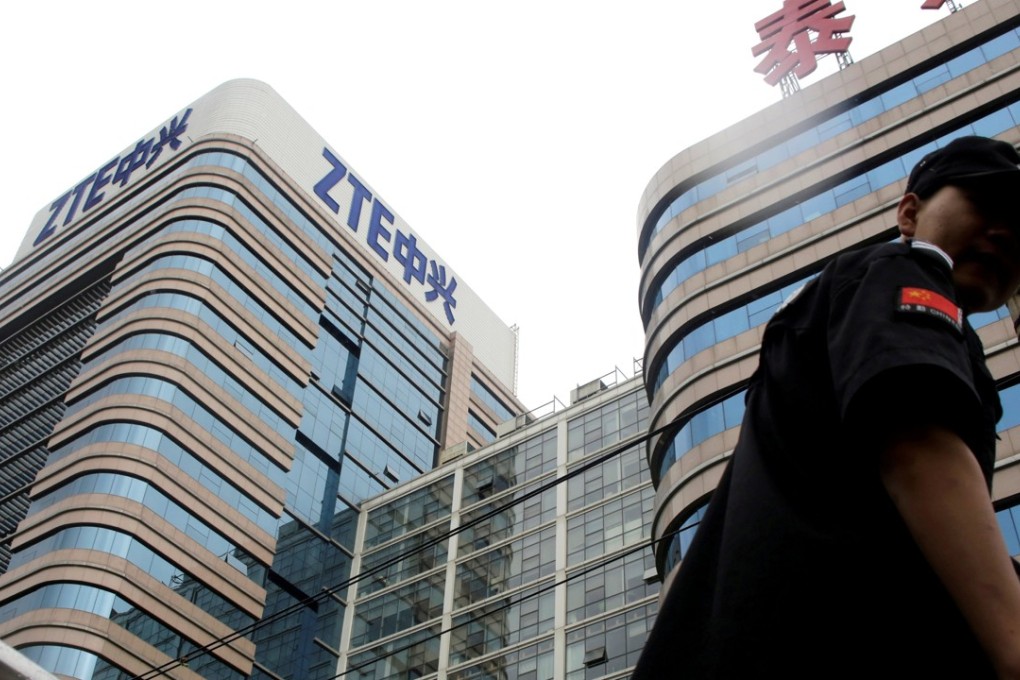ZTE’s profit dives 65 per cent as it tries to move past US ban
- ZTE reported net income of 564.5 million yuan (US$81.2 million) for the quarter ended September, compared with its own projection for 1.02 billion yuan
- ZTE is recovering from a months-long US Commerce Department ban on purchases of American technology

ZTE Corp’s quarterly earnings slid 65 per cent, underscoring a difficult recovery from US sanctions that briefly brought China’s No. 2 telecommunications gear vendor to a standstill.
The state-backed company reported net income of 564.5 million yuan (US$81.2 million) for the quarter ended September, compared with its own projection for almost break-even to 1.02 billion yuan. Revenue for the period slipped 14 per cent to 19.3 billion yuan.
ZTE is recovering from a months-long US Commerce Department ban on purchases of American technology, including components needed to produce its smartphones and networking equipment. Washington agreed to lift that moratorium – punishment for violating and lying about sanctions on exports to Iran and North Korea -- only after ZTE agreed to replace its board and senior management and paid more than US$1 billion in penalties.
Investors however remain cautious on Chinese corporations as US tensions escalate. ZTE has since initiated a number of efforts to lower costs, including restructuring a smartphone arm that’s become a drag on the overall business. Beijing has also reportedly asked the country’s biggest telecom carriers to favour ZTE when purchasing equipment. In August, the company predicted net income of 24.2 million yuan to 1.02 billion yuan in the September quarter, a wide range that reflected its uncertain prospects.